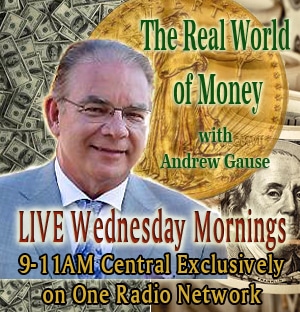The institution which creates and oversees Americas currency wants
to keep a "low profile," according to a published report on Monday, and
may willing to dodge the U.S. Treasury in order to do so.
According to Bloomberg News,
the Federal Reserve Bank will not submit to a voluntary public study of
its internal structure and methods of governance, as it was requested
to do so by Treasury Secretary Timothy Geithner.
Geithner is the former New York Federal Reserve Bank chairman. The
review he requested is part of President Barack Obamas financial
regulatory reforms, which he proposed in mid-June. Part of those
reforms would have studied the Feds "ability to accomplish its
existing and proposed functions" — a proposal the banks board of
governors appears to have flatly rejected.
"The agency also said that while the report requested by Secretary
Geithner and his department has not yet been scrapped, no work has been
done on the project, which is due Oct 1," noted Reuters.
"The institution is trying to keep a low profile," Vincent Reinhart,
a former Fed monetary policy director, told Bloomberg. "To publish a
report now invites comment on that report."
And comments are the last thing the Fed wants right now.
Under fire
The Federal Reserve has been under growing political fire ever since
Congressman Ron Paul (R-TX) made it a frequent target during his
presidential campaign. However, Paul has been a longtime opponent of
the bank, openly calling for it to be abolished and the U.S. dollar to
once again be backed by gold, instead of mere faith.
"From the Great Depression, to the stagflation of the seventies, to
the burst of the dotcom bubble last year, every economic downturn
suffered by the country over the last 80 years can be traced to Federal
Reserve policy," Paul said in 2002, according to congressional records.
"The Fed has followed a consistent policy of flooding the economy with
easy money, leading to a misallocation of resources and an artificial
‘boomfollowed by a recession or depression when the Fed-created
bubble bursts."
His bill, House Resolution 1207,
which would subject the Fed to a complete audit, has gained significant
traction in the U.S. House of Representatives, with over half its
members signing on in support of the move. Though mostly Republicans, a
large cross-section of Democrats reached across the aisle to support
the bill, and Rep. Barney Frank (D-MA), who chairs the House Financial
Services Committee, recently told a town hall audience that the Fed
will be subjected to a complete audit soon. He predicted the House will
pass Pauls bill — or an amalgam of it, wrapped with other regulatory
reforms — "probably in October."
"A companion bill in the Senate introduced by Sen. Bernie Sanders (I-Vt.) has 27 cosponsors," noted The Hill.
The Fed has also come under fire for refusing to disclose which
firms it paid massive bailouts to in 2008 and early 2009, amid the
greatest financial crisis since the Great Depression. A particular
amount of interest among lawmakers has focused on the Bank of American
– Merrill Lynch & Co. merger, which the Fed facilitated.
The House Domestic Policy Subcommittee, under the leadership of Congressman Dennis Kucinich (D-OH), subpoenaed the Fed
in June for records relating to the transaction. New York
Attorney-General Andrew Cuomo has claimed that, in 2008, then-Treasury
Secretary Hank Paulson and Federal Reserve Chairman Ben Bernanke
strong-armed BofA into buying Merrill — a move that, if true, could
expose Paulson and Bernanke to prosecution. That investigation is under
way.
Fed Chairman Ben Bernanke "has vehemently opposed the idea [of an
audit], asserting that it would lead to the politicization of monetary
policy by giving Congress an easy way to second-guess any decision the
Fed makes," noted The Los Angeles Times in late August.
That specific argument — that the monetary system is endangered by closer observation of Fed actions — was discounted by Judge Loretta Preska of the Manhattan U.S. District Court, in a ruling that ordered the Fed to disclose which firms received bailout dollars.
While the Fed argued that disclosing who was bailed out on the
taxpayers dime could be detrimental to the agencys independence from
Congress, Judge Preska wrote that the claim was based merely on
"conjecture" and the court remained unconvinced because the Fed had
failed to provide adequate evidence to substantiate its claims.
"[The] risk of looking weak to competitors and shareholders is an
inherent risk of market participation; information tending to increase
that risk does not make the information privileged or confidential,"
she wrote.

'Federal Reserve rejects request for public review' has no comments
Be the first to comment this post!